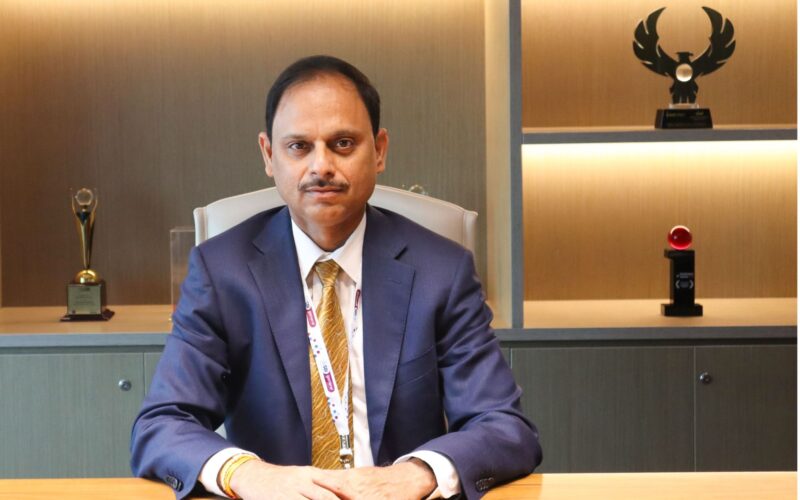#GSTCouncil #HealthInsurance #AffordableHealthcare #InsuranceForAll #SBIGeneralInsurance #UniversalHealthCoverage #HealthcareReform #FinancialSecurity #NetZeroGST #InsuranceNews
New Delhi – In a landmark move set to reshape India’s healthcare and insurance landscape, the 56th GST Council meeting has announced the reduction of GST on individual health insurance premiums from 18% to 0%. The decision, hailed as one of the most significant reforms in recent years, is expected to drastically improve affordability and accessibility of healthcare and health insurance across the country.
Welcoming the reform, Mr. Naveen Chandra Jha, MD & CEO, SBI General Insurance, described it as a “transformative step toward greater affordability and inclusivity.”
A Historic Decision for Healthcare Affordability
The health insurance sector has long advocated for a reduction in GST on premiums, arguing that the 18% tax made policies costlier for households, particularly in middle-income and rural segments. With healthcare costs rising sharply in India, affordability of insurance has been a major barrier to achieving wider penetration.
By reducing GST to zero percent, the Council has not only made health insurance more financially accessible but has also aligned with India’s larger goal of expanding universal health coverage.
Mr. Jha said:
“The GST Council’s decision to reduce tax on the healthcare sector marks a transformative step toward greater affordability and inclusivity. At a time when India’s healthcare market is poised for significant growth, this reform acts as a timely catalyst to strengthen the ecosystem by addressing one of the biggest barriers to quality healthcare affordability.”
Expanding Access to Healthcare
Health insurance penetration in India remains below 20% for individuals, despite rapid growth in recent years. Rising hospitalisation costs, expensive medicines, and limited state-funded healthcare schemes have made private health insurance increasingly important. However, high premiums compounded by an 18% tax rate often deterred first-time buyers.
The GST cut, industry experts note, will directly benefit millions of families by lowering their annual outgo on insurance policies, thereby encouraging more individuals to purchase coverage.
Mr. Jha highlighted the wider impact of the reform:
“Whether it is making life-saving drugs more accessible or lowering the cost of health insurance, the move directly tackles a long-standing challenge and will enable millions of families to take a crucial step toward financial and medical security.”
Boost to the Insurance Sector
For insurers, the reform opens new growth opportunities. With premiums becoming more affordable, companies expect stronger demand, particularly in tier-2 and tier-3 cities as well as semi-urban and rural markets.
Calling it a pivotal moment, Mr. Jha observed:
“For the health insurance sector, this change comes at a pivotal moment. As India’s healthcare needs expand and medical risks evolve, the importance of universal health coverage has never been more evident. Health insurance is not merely a financial product, it is a lifeline that protects families, supports well-being, and builds resilience against future uncertainties.”
Aligning with ‘Insurance for All by 2047’
The government has set an ambitious target of achieving ‘Insurance for All by 2047’, in line with India’s centenary of independence. The GST reform is seen as a key enabler of this mission, bridging gaps in affordability and encouraging wider adoption of insurance as a household necessity rather than a discretionary spend.
Mr. Jha reiterated SBI General Insurance’s commitment to this national vision:
“At SBI General Insurance, we view this reform as a strong driver in accelerating India’s journey toward ‘Insurance for All by 2047.’ Our focus will be on leveraging this opportunity to design affordable, accessible, and customer-centric health insurance solutions, while expanding our reach across rural and semi-urban India.”
Wider Policy Implications
The GST Council’s decision comes against the backdrop of rising healthcare inflation and growing public demand for insurance-backed medical security. Industry leaders believe the move will:
-
Lower entry barriers for first-time policyholders.
-
Encourage younger demographics to purchase insurance early.
-
Boost policy renewals by reducing annual premium costs.
-
Support insurers in deepening penetration beyond metros.
Economists also note that while the reform may cause a short-term revenue dip for the exchequer, the long-term benefits of increased insurance coverage – such as reduced out-of-pocket expenditure and improved health outcomes – far outweigh immediate fiscal concerns.
Looking Ahead
With this reform, India joins a small but growing list of countries that incentivise health insurance through tax exemptions, recognising its role in strengthening public health and reducing financial vulnerability.
The onus now lies on insurers to capitalise on the momentum by creating affordable products, simplifying claim processes, and enhancing distribution networks. Digital adoption and partnerships with banks, NBFCs, and fintech platforms will also be critical in expanding coverage.
Conclusion
The zero GST on health insurance premiums represents a watershed moment for India’s healthcare and insurance ecosystem. By eliminating a long-standing cost barrier, the government has provided a strong push toward universal health coverage, financial protection, and inclusivity.
As articulated by Mr. Naveen Chandra Jha of SBI General Insurance, this reform is not just a tax cut – it is a lifeline for millions of families and a catalyst for industry growth, putting India firmly on the path toward affordable and accessible healthcare for all.
Hashtags:
#GSTCouncil #HealthInsurance #AffordableHealthcare #InsuranceForAll #SBIGeneralInsurance #UniversalHealthCoverage #HealthcareReform #FinancialSecurity #NetZeroGST #InsuranceNews

